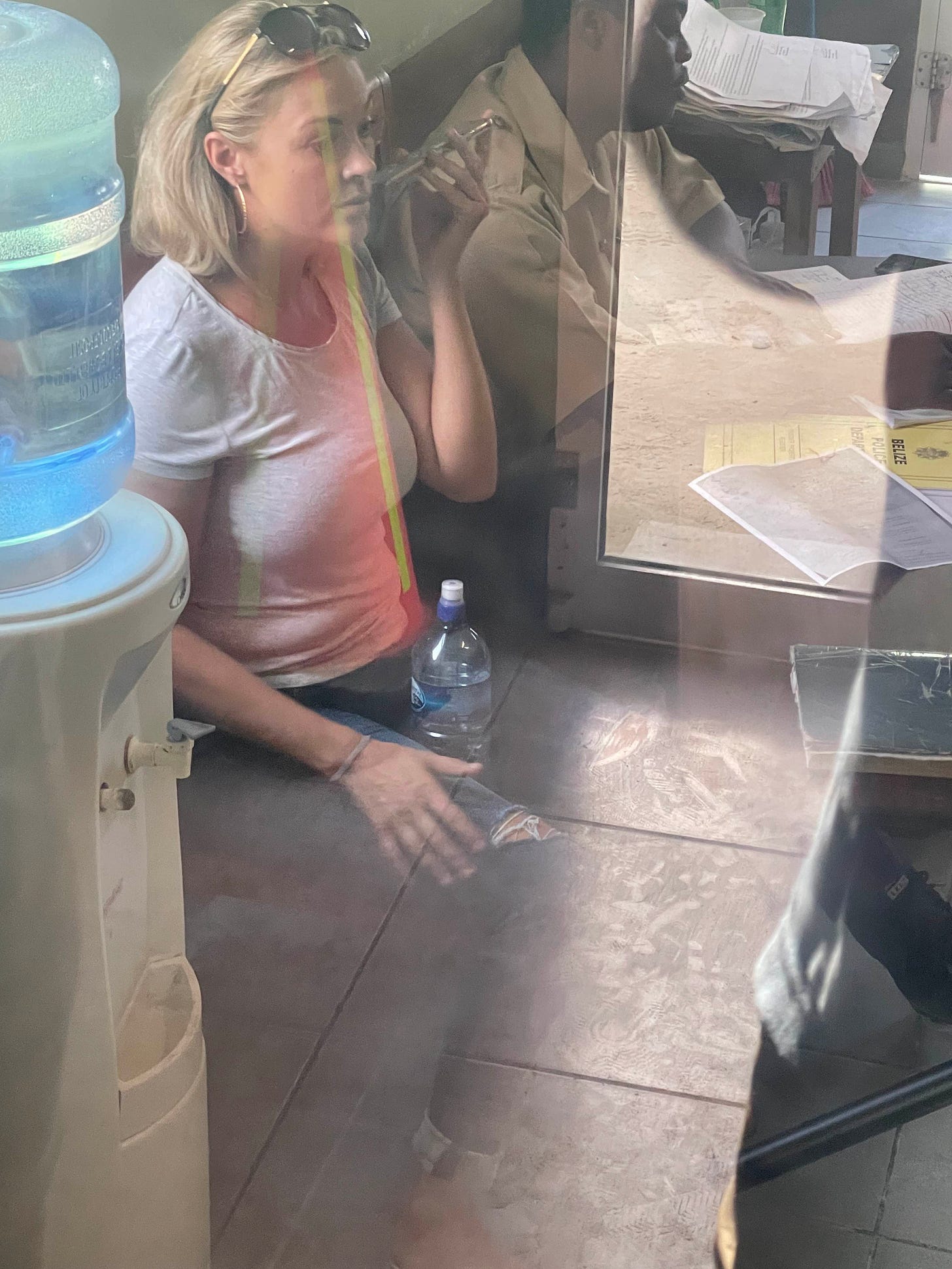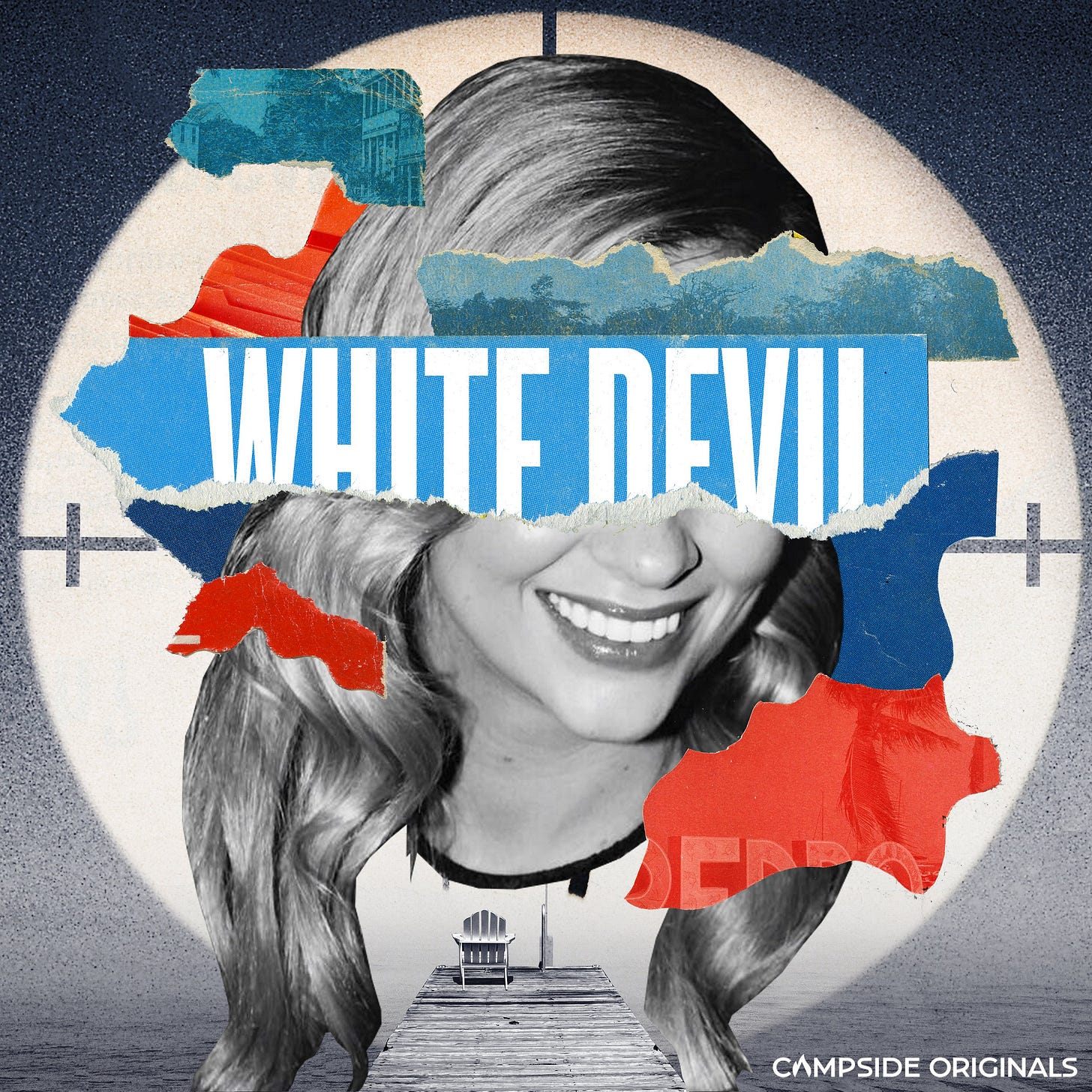White Devil: The Story Behind the Story
Host and Campside co-founder Josh Dean on what made the story of a shooting in Belize so much more complicated than he expected
This is part of Inside the Tent, a series going behind the scenes of Campside’s award winning podcasts.
Listen now to all 12 episodes of White Devil.
I’ve found myself saying a lot lately that “White Devil” isn’t the kind of story I’d usually be drawn to, in that it is (or seemed) on the surface to be a tawdry, ripped-from-the-headlines tale of rich people behaving badly. And that’s just not what I’m typically interested in. But the truth is that the underlying story was far more complicated than what we were reading in headlines, and that’s probably the trap door I fell into. Because I like narratives that exist on a few levels — good yarns that also happen to be about something. Which sounds pretentious but really just means that I need some themes to obsess over.
But how did it happen, actually? It started in the most benign way possible: A friend emailed me the story, right after Henry Jemmott’s death, and said something like, “keep an eye on this one.” That friend was the film director Will Gluck, who you may recognize from the podcast credits. His company, Olivebridge, is also mentioned. Will has an interest in true stories. Campside and Olivebridge teamed up to develop the TV adaptation of our podcast Chameleon: Hollywood Con Queen, and we’d become friends, trading podcast ideas and talking often about further collaboration. He was wanting, on some level, to participate in the creation of a narrative podcast from the start.
Anyway, I set a Google alert about the Henry Jemmott shooting and started following the case. Within a week, I was curious enough to seek out some help and had found a local reporter to be my eyes on the ground. You’ll recognize him in the series as the reporter, Hipolito Novelo. I felt that if I was going to actually understand the events as they were happening, I needed to have a guide who really understood the place. And Hipolito is the best. He’s smart, honest, and independent – which turns out to be a rare thing among journalists in Belize.

White Devil, on a headline level, is a pretty compelling set-up for a true crime show: A black cop is shot dead with his own sidearm, on a pier, late at night while sitting alone with a rich white woman. There are no other suspects. Just Jasmine Hartin, the common law wife of one of Belize’s richest men, with whom she shared two children. She became known, in press short-hand, as a “socialite.” But Jasmine had no criminal record, or a motive. Why would she just shoot a cop, who was her friend? And how did she get his weapon?
The answer, it turned out, was pretty simple. It was a terrible accident. And that was clear almost immediately, to everyone who looked at the objective facts on the ground: to the cops, the prosecutors, to Hipolito, and to me, sitting thousands of miles away. Henry’s family, of course, is another story, and as I say in the podcast, I completely understand why they felt, and feel, differently. So this incredible set-up for a sort of closed-room murder mystery (in the outdoors) turned out to … not be much of a mystery at all. That’s not the kind of story you tend to build a limited series podcast about. You’d be finished by the end of episode 1.
But here I am, having just made 12 episodes. What changed? Basically, nothing that happened after the shooting was what I expected. Jasmine Hartin – this apparently rich and powerful woman – didn’t just walk away unscathed. She spent weeks in the country’s worst prison and then, when released, was banished to a house on the opposite side of the country from her partner and their twin toddlers. It seemed, if you were paying close enough attention, like the powerful people around here weren’t closing ranks; they were casting her out. But the media, especially abroad, never dug deeper than the headline.

Still, I wasn’t sure what to do with this. I kept following the story, and talking to Hipolito. Every few days, Will and I would talk and he’d ask me if I planned to make a podcast. I still didn’t know. I was just watching and waiting. And one of the things that interested me most was the family behind Jasmine, and especially the patriarch of that family: Michael Ashcroft. I’d never heard of Ashcroft, but he was a fascinating guy. A self-made billionaire with two passports who had made himself into Belize’s most powerful man, starting with the takeover of its bank. He moved into other sectors from there, accumulating money and influence. And this idea, that a single individual could wield so much power over a sovereign nation in 2021 (when this journey began) was a pretty compelling thread to tug on.
Then, later that summer, I finally reached Jasmine Hartin. She was angry. And ready to talk. And had quite a story to tell. That story is the backbone of White Devil. But the story was never just about Jasmine, or the death of Henry Jemmott. It was pretty clear to me that the show would also, to some extent, tell the story of this man, Michael Ashcroft, and his family/empire. As well as the story of this country, Belize, that we only know for its beautiful beaches and coral reef — if we know it at all.
Over time, as I began to talk to Jasmine, and learned more about the case, this story that began with a suspicious death – and felt like the seed of a true crime tale – became more of a psychological thriller. The story of how a terrible accident set in motion a series of incredible events that led this Canadian woman who’d given birth to Michael Ashcroft’s grandchildren to do battle with an array of forces for her life, her freedom and for access to her children. Remember, her children were basically removed from her life the night of the shooting. Along with access to her home, her finances, and her belongings. She seemed increasingly paranoid, understandably, and mostly alone. And one of the only weapons at her disposal was a willingness to engage the press, and speak freely.
White Devil is a hard podcast to pitch in an elevator. Naturally, people seem to point to the shooting, to the race/class elements, and to what seemed from afar like a mystery. But really, at its core, it’s a tragedy and a family drama— a true crime story for people who don’t typically like crime stories.
It’s also – in the tradition of The Clearing and Hooked, two of my previous shows – a podcast that’s based largely around a central character who talked to me over several years. It requires a lot of trust, from both sides. Whether you ultimately like Jasmine – and plenty of people do not, believe me — or just find her compelling, her story is troubling. It’s easy to imagine an alternate reality where we never pick up this project, and she’s largely talking into the void. I don’t know if having this fuller account of the events following Henry’s death — as Jasmine fought for her kids, while navigating the Kafkaesque world of Belize’s legal system — actually means anything. I think Jasmine feels vindicated, to some degree, that a team of journalists listened to her, and vetted her story. But she’s still stuck in legal limbo, and may be fighting for her kids (and what’s left of her stake in Alaia, the company she helped build) for a long time.
Thanks for reading. Subscribe now for updates on White Devil and all of Campside’s hit shows.
Josh



